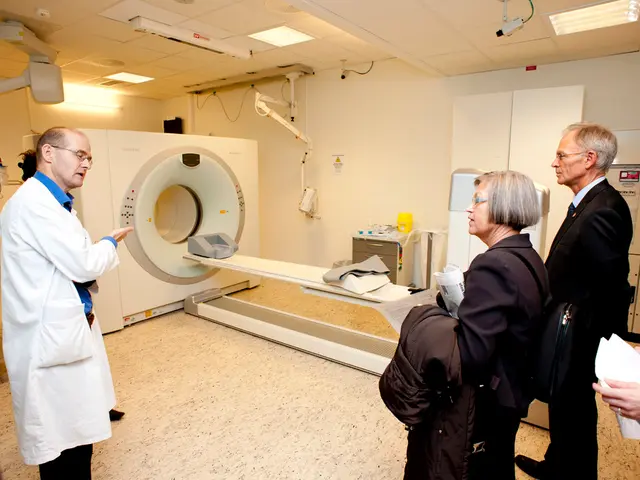Struggling Recognition: Mother Suffering from Dementia Only Gazes at Son
In the face of dementia, a condition that affects millions worldwide, causing memory loss, cognitive decline, and identity changes, it's essential to remember that individuals with dementia can still feel love and affection, even if they don't recall the person visiting them.
As the disease progresses, the brain's ability to store and retrieve memories, particularly of familiar faces, deteriorates, making emotional connections more challenging. However, maintaining emotional bonds is achievable through various strategies.
One such approach is focusing on nonverbal and sensory cues rather than relying solely on memory. Engaging in simple shared activities like looking at photo albums, listening to familiar music, or gentle touch such as hand massages can evoke moments of recognition or comfort and foster emotional bonding even as verbal communication diminishes.
Other strategies include using consistent routines and familiar surroundings to reduce confusion, prioritizing social engagement and physical movement to support brain health and emotional well-being, and practicing patience, compassion, and therapeutic redirection to manage frustration and behavioral changes during interactions or care decisions.
Seeking support from professionals who specialize in dementia care, such as memory care facilities, support groups, and trained caregivers, can provide valuable guidance and assistance. It's also crucial to support caregivers by joining support groups and seeking respite services to sustain their emotional health, which in turn helps maintain quality interactions with the loved one.
In moments of confusion, it's vital to respect a person's emotional state, being patient and empathetic. Unpredictable reactions, such as offering a hug or a kiss, demonstrate that a person's heart recognizes you even when their mind may not. Avoid forcing a person with dementia to remember who you are, as insisting on recognition can lead to frustration and distress.
People with dementia may still perform actions that reveal a connection, such as offering a hug or a glass of water. Cherishing the moments of connection, no matter how brief or fleeting, is crucial when navigating the challenges of a loved one with dementia not recognizing you.
It's essential to remember that dementia is not a choice; it is an illness that individuals are grappling with. Embrace experiences and insights in dealing with a loved one with dementia, sharing them in the comments section to help others on similar journeys. By focusing on creating positive emotional experiences, rather than specific memories, we can provide comfort and connection, making the journey a little less daunting.
Maintaining mental health amidst aging is crucial for individuals with dementia, as it can positively affect their overall health-and-wellness. Integrating science-based approaches, such as focusing on nonverbal cues and sensory experiences, can help strengthen emotional bonds. Furthermore, by prioritizing women's health in dementia research and care, we can better understand and address the unique challenges faced by women living with dementia.




